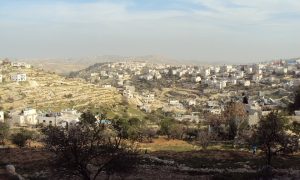IMF Staff Concludes Virtual Mission on Lebanon
An International Monetary Fund (IMF) mission, led by Mr. Ramirez Rigo, conducted virtual discussions from January 24 to February 11, 2022 with the Lebanese authorities on the framework and policies of an economic reform program that can be supported by the IMF. Engagement with the authorities will continue over the coming weeks.
At the end of the discussions, Mr. Ramirez Rigo issued the following statement:
“The unprecedented and complex nature of the Lebanese crisis requires a comprehensive economic and financial reform program to stabilize the economy, address deep-seated challenges, and lay the ground for sustainable and strong growth. Obtaining broad based buy-in for this multi-year program will be fundamental for its timely and decisive implementation. At the same time, strong upfront actions will be necessary to start turning the economy around and rebuilding confidence.
Lebanon’s economic program would need to include targeted and timebound actions across the following five pillars:
- Fiscal reforms that ensure debt sustainability but also space to invest in social spending and reconstruction efforts.
- Restructuring of the financial sector to strengthen confidence and support the recovery.
- Reforming state-owned enterprises, and, particularly, the energy sector to provide better services without draining public resources.
- Strengthening governance, anti-corruption, and AML/CFT frameworks to enhance transparency and accountability
- A credible monetary and exchange rate system.
“During the mission, progress was made in agreeing on these necessary reform areas, although more work is needed to translate them into concrete policies. There is a clearer understanding of the unprecedented size of the financial sector’s losses that would need to be addressed transparently consistent with the hierarchy of claims while protecting small depositors, as already envisaged by the authorities. The 2022 emergency budget presents an opportunity to start addressing the dire fiscal situation while being mindful of the financing constraints.
“It will be important to develop a medium-term fiscal strategy that allows the government to invest in critically-needed social spending to support the people of Lebanon — and enables reconstruction efforts — while being consistent with debt sustainability. The authorities’ plans to strengthen competition and start addressing the energy sector problems are a promising start, although careful sequencing and strong implementation are required. Finally, decisive action by the authorities is needed to tackle the deep-seated problem of corruption and strengthening transparency, including by accelerating the launch of the procurement commission and lifting the bank secrecy law or amending it in line with international best practice.
“The IMF team welcomes the open and constructive discussions with the Lebanese authorities , as well as representatives of civil society and the private sector, which have enriched our understanding of the situation. The team will remain closely engaged, and discussions are continuing, to help the authorities formulate a reform program that can address Lebanon’s economic and financial challenges.”





















